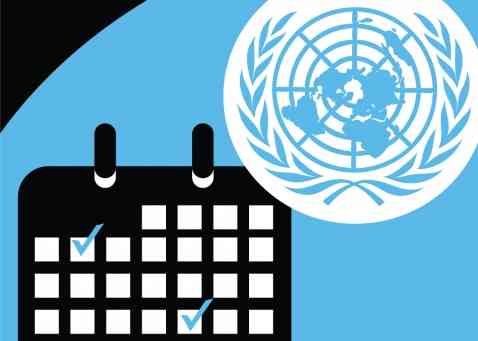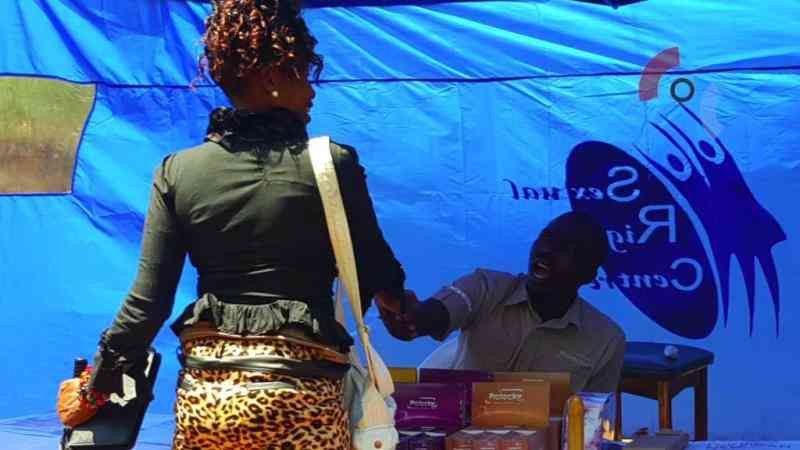
THE world is battling the adverse effects of climate change and environmental abysses.
As nations observe and commemorate important days and weeks, the playing field is not level and supportive. Besides taking note of the environmental days, there are also some important non-environmental days on the global calendar the world cannot afford to ignore.
This makes it difficult for the envisaged just world aimed at redefining priorities for a fairer and habitable world, in the context of global events being overloaded.
Due to global information overload, the world has chosen to prioritise some days, weeks and occasions over others. This does not mean that the skipped days and weeks are not important, but they are just left out.
Already in the month of January, there are some occasions that have received organisational, institutional, national or global attention while some have not. This write-up shall only focus on the months of January, February and March which appear too busy and overloaded.
January 4 was World Braille Day, while January 24 will be the International Day of Education. While these two days can simply be combined if World Braille Day did not receive much attention, that depends on countries concerned. The 4th and 24th of January largely appeal to SDG4 — Quality Education, commitment to ensure inclusive and quality education and promote lifelong learning opportunities for all. These also include environmental and climate education, communication and awareness as a continuous process.
January 26 is the International Day of Clean Energy. The day reminds developing countries about their unfinished business of transitioning to low carbon economies. The majority in the Global South is confronted with acute energy challenges hence they should be delivered from energy poverty and realise clean energy for cooking, lighting, agriculture, manufacturing, healthcare, education, transportation and electricity production.
The International Day of Clean Energy appeals to SDG7, ensuring access to clean and affordable energy. On January 27, people of the world put their hearts and minds together to celebrate the International Day of Commemoration in Memory of the Victims of the Holocaust. Never ever should this happen again although it is unfolding in that direction in the Middle East.
- Inaugural poetry awards on cards
- International environmental days in the context of the global calendar overload
- Support people with intellectual disabilities, govt urged
Keep Reading
The month of February is loaded with events of global prominence and significance. February 1, World Interfaith Harmony Week (to promote a culture of peace, non-violence and religious tolerance) SDG16, followed by the World Wetlands Day (protecting our wetlands for our common future) on February 2.
These two sustainable pillars can succeed in the context of peace, non-violence and religious tolerance, in achieving environmental stewardship. The World Wetlands Day appeals to SDG15, which seeks to protect and promote the sustainable use of terrestrial ecosystems. This is important in managing forests, stopping land degradation, combat desertification and avoiding biodiversity loss.
Other important days are the International Day of the Human Fraternity on February 4, International Day of Zero Tolerance to Female Genital Mutilation on February 6, International Day of Women and Girls in Science on February 11, World Radio Day on February 13, Global Tourism and Resilience on February 17, World Day on Social Justice on February 20 and International Mother Language Day on February 21.
The day of Human Fraternity will collaborate with the International Day of Zero Tolerance to Female Genital Mutilation and International Day of Women and Girls because they all touch on issues of humanity such as justice, democracy, tolerance, solidarity, cultural diversity, among others.
All these pillars appeal to SDG16 — contributing to the broader human rights framework which emphasises promoting peaceful societies, respecting human rights, freedom of expression and access to information. February is a human-centred month hence there are no human rights without environmental rights.
The whole of March is an action-packed month focusing on Zero Discrimination Day on March 1, World Wildlife Day on March 3, International Women’s Day on March 8, followed by International Day of Women’s Judges on March 10, International Day to Combat Islamophobia on March 15, International Day of Happiness on March 20, International Day for the Elimination of Racial Discrimination on March 21, among others.
On March 1, nations will be celebrating the right of everyone to live a full and productive life and live it with dignity. Therefore, communities should not discriminate against wildlife, women, environment, religion, race and happiness. These pillars are compatible with SDG16 advocating for building peace, justice and strong institutions.
These pillars are important for promoting peaceful and inclusive societies, providing access to justice for all and building effective, accountable and inclusive institutions at all levels.
We continue to walk each other in March, focusing on World Poetry Day on March 21, World Down Syndrome Day on March 21, World Water Day on March 22, World Meteorological Day on March 23, World Tuberculosis Day on March 24, International Day for the Rights to the Truth Concerning Gross Human Rights Violations and for the dignity of Victims on March 24.
The World Poetry Day is a pillar for SDG4 (quality education), which can also include environmental education, awareness and advocacy. Poems about the environment and climate change can be composed and recited.
Poetry is a powerful tool to communicate environmental challenges, climate change and SDGs.
The World Down Syndrome Day advocates for inclusivity, peace, tolerance and social justice, all identified under SDG16. World Water Day and World Meteorological Day have strong working relationships, while premised in the environment to deliver clean water and sanitation, raising awareness and early warning systems. Both water and meteorology appeal to SDG1 (no poverty), SDG2 (no hunger), SDG3 (good health and wellbeing), SDG4 (quality education) SDG6 (clean water and sanitation) and SDG13 (climate action). All these contribute to food security, environmental sustainability and good health and global education.
This write-up serves to demonstrate how packed and information overloaded the months of January, February and March are going to be. Themes that are not environmental in nature can be integrated into the environment so that strong institutions and networks can be built.
- Peter Makwanya is a climate change communicator. He writes in his personal capacity and can be contacted on: petrovmoyt@gmail.com










